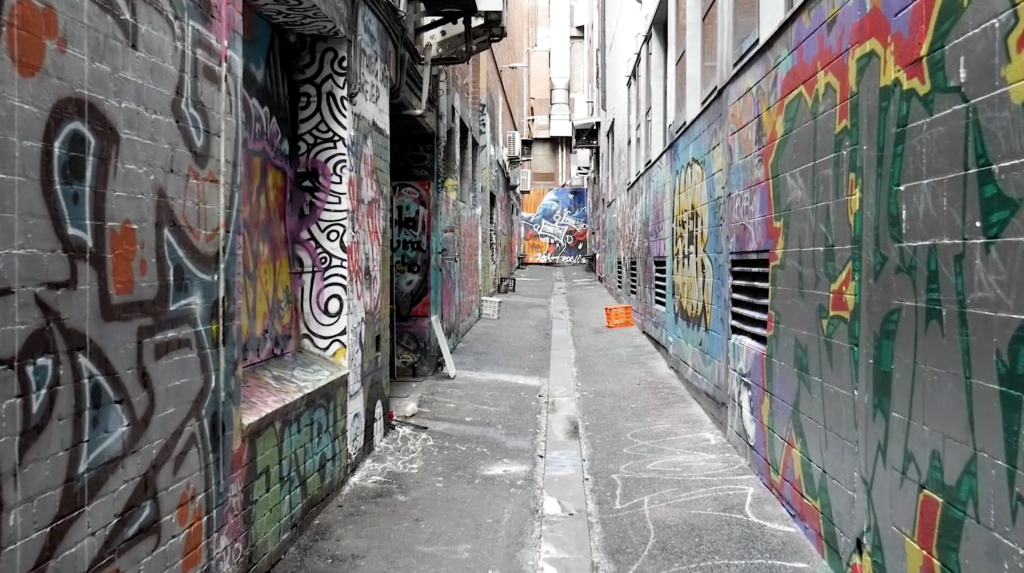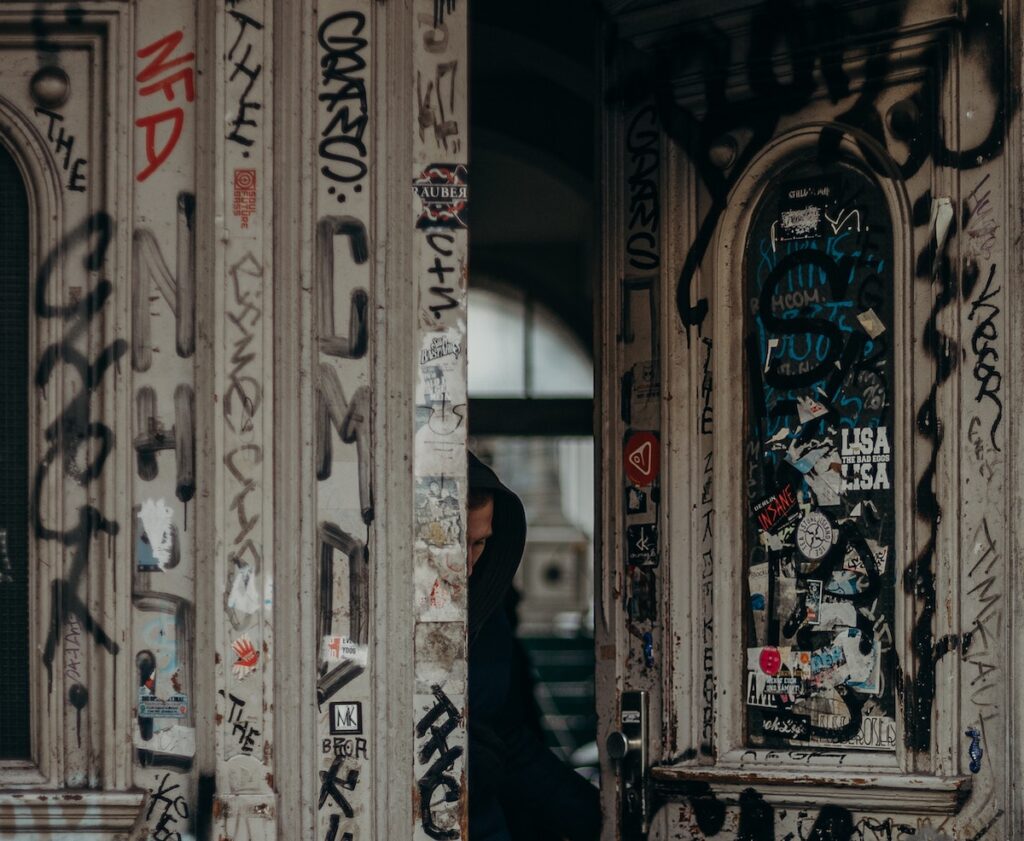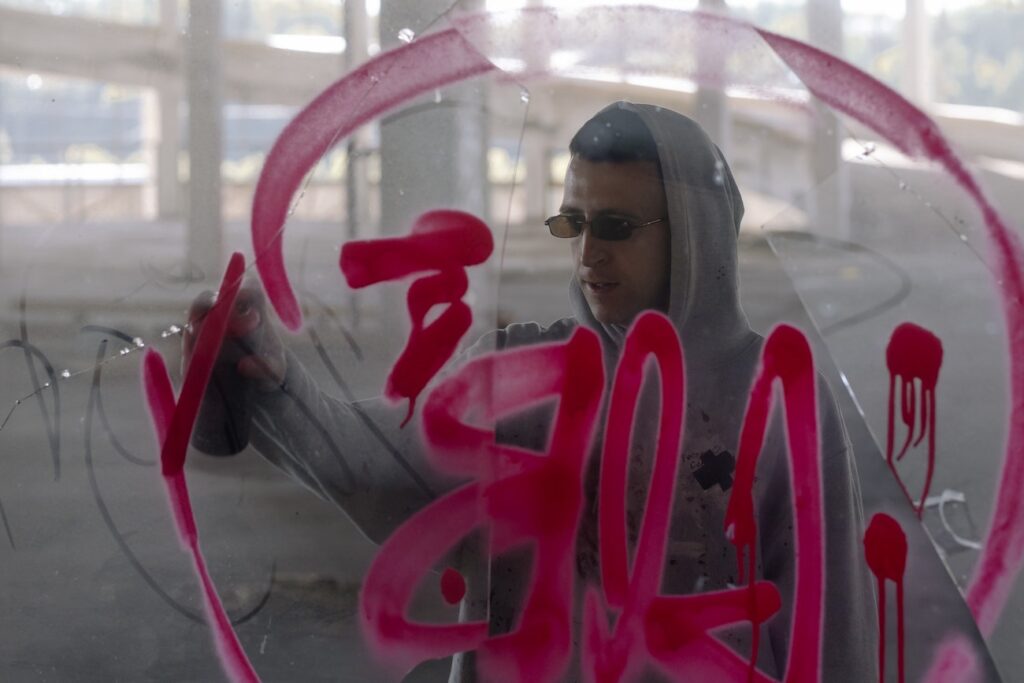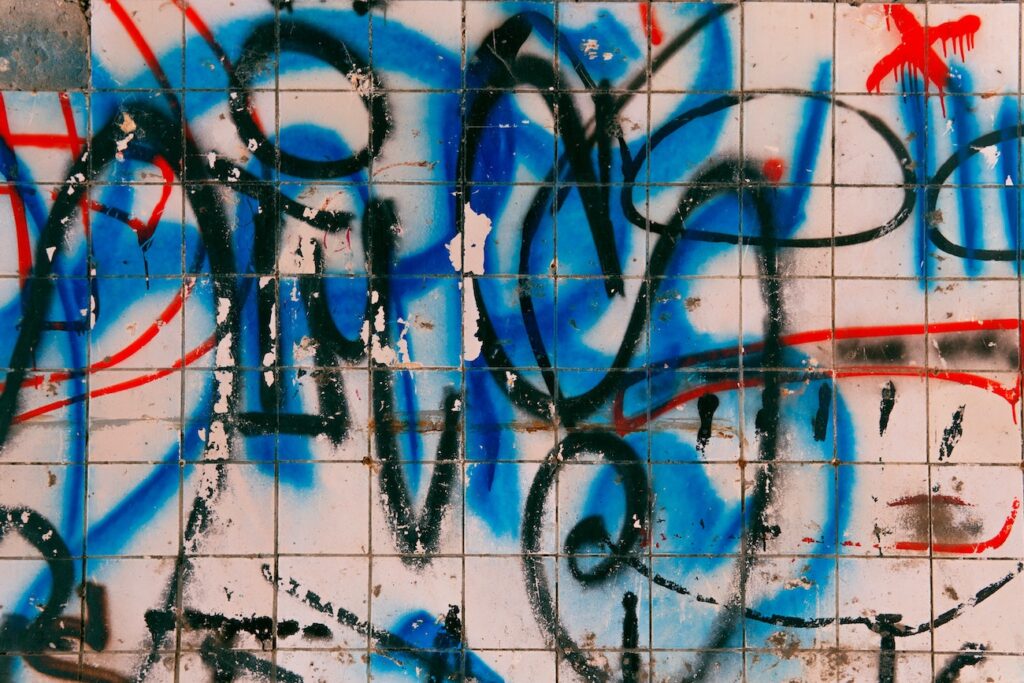
How to remove graffiti? – The Ultimate Guide for 2021
by Alfredo Mendoza, onGraffiti Removal , October 19, 2021

by Alfredo Mendoza, onGraffiti Removal , October 19, 2021
If you’re looking for a guide on how to remove graffiti from your house, then this is the blog post for you.
We’ll show you some of the most effective methods that are available to get rid of graffiti without damaging your home. It’s never too late to take care of this problem!
In this article:
Graffiti is any writing or drawings that have been scribbled, scratched, scrawled and marked in a public space without permission.
It can be done with paint or marker pens, and it’s considered to be criminal damage by law.
Graffiti artists use their unique styles and themes when doing graffiti. The most common form of graffiti is tagging which is when someone uses the name of their street gang or crew.
The word graffiti comes from the Italian word “graffiato”, which means anything drawn on a wall with nails, metal instruments, etc.
Now that we know what it is let’s get into how to remove graffiti from different surfaces. Each surface requires another method, so you need to read carefully to find the best solution for your home.

There are many different homemade formulas that people use when trying to remove spray paint. Some of them include acetone, nail polish remover and rubbing alcohol.
However, these products will not work very well on certain surfaces, so you should read the labels or contact the manufacturer for more information!
You also need to know that often times commercial cleaning products contain strong chemicals that could damage certain surfaces, including your skin, eyes and mouth.
Graffiti removal experts have all the protective gear to handle these chemicals. In some cases, removalists may have eco-friendly solutions depending on the type of paint and kind of surface.
If you’re concerned about the chemical footprint the graffiti removal process may leave behind, make sure to take advice from the experts before starting.
The best way to remove graffiti from concrete is to use a high strength paint stripper. Be sure to follow the instructions from the manufacturer and remember that you must always protect your skin, eyes and mouth when using chemicals.
Before applying a chemical paint stripper, you should remove any loose paint particles.
Afterwards, apply the paint stripper on the surfaces, let it sit for a couple of minutes and then use a stiff brush or scrub to remove the graffiti from the concrete.
In many cases, the chemical doesn’t obliterate the graffiti. It would help if you used pressure washing to remove any excess paint and then prime and re-paint the surface.

The best way to clean graffiti from bricks is by using a wire brush and some warm water.
This process is very similar to removing graffiti from concrete. However, bricks are a little more fragile, so you need to use a lighter touch when scrubbing with the wire brush.
If you are planning to use pressure washing on brick, you should know that this method will cause water stains if the bricks are not completely dry.
After you finish scrubbing with the wire brush, spread some absorbent powder on the surfaces to soak up any remaining moisture.
Ensure that you wear protective gloves and goggles to protect yourself against side spray when cleaning with a high-pressure washer. It’s important not to harm the mortar between your bricks when using this type of machine, so be careful while cleaning – it’s always better to test on an inconspicuous area first!
There are also chemical paint removers available that can help eliminate the most stubborn types of graffiti from bricks. After removing the remaining bits of paint, you should prime and re-paint your bricks.
If you have wooden surfaces that are covered with graffiti, then we recommend using a paint stripper that contains methylene chloride. This chemical will break down the surface of the paint and make it easier to remove. We also advise doing this over a tray since this chemical can damage your skin.
Ensure to protect yourself and wear protective clothing, eye protection and breathing masks when using methylene chloride! We advise you to hire an experienced graffiti removalist to get the job done for peace of mind.
In Australia, methylene chloride is considered to be a hazardous chemical with potential long-term health effects if you don’t want to use methylene chloride.
Then you can remove graffiti from wood using an oil paint stripper like Citrustrip 300 Plus.

Cladding materials come in several presentations. Some types of cladding are textured, some have a smooth surface and others require some special treatment.
You may also be interested in: 6 Things You Should Know about Anti-Graffiti
A wooden fence covered with graffiti can be cleaned by using a wire brush and some warm water. Make sure that the fence is not in direct sunlight when you use this method because it can cause irreparable damage to the wood.
Afterwards, apply the paint stripper on the surfaces, let it sit for a couple of minutes and then use a hard brush or scrubber to remove the paint. Protect yourself by wearing protective clothing and eye protection during this process!
The best way to clean graffiti from plastic surfaces is by using an eraser or sandpaper if it’s not too visible. For this method, you’re better off using household ammonia since it contains abrasives that help smooth out the surface of the plastic.
We recommend hiring a professional, as ammonia can be quite harmful to the environment and cause damage to your eyes and skin.
To prevent any harm, wear protective clothing and glasses while cleaning with ammonia.
Also, ammonia may remove the original paint from your plastic surface, which is why we recommend using it only if the graffiti is not too visible.
If you use sandpaper, make sure to do it carefully and gently to avoid causing any scratches on your plastic surface.

Graffiti on ABS plastic can be challenging to remove, especially if it’s been there for a long time. To get rid of graffiti from PLA, try using a wire brush first. Apply some warm water on the surface of the plastic, scrub off the paint using a wire brush and then wipe away any remaining stain with some paper towels.
After that, you can use some solvent to remove graffiti from ABS plastics – methyl ethyl ketone or MEK are good choices for this job. Just pour some MEK onto the surface, wait for 6-10 minutes and remove the paint with paper towels.
In Australia, methyl ethyl ketone or MEK is considered a hazardous chemical with potential long-term health effects. If you don’t want to use MEK to remove graffiti from your ABS plastic, we advise you to hire a certified and fully insured specialist.

The most effective way to remove graffiti from metal is by using a high strength paint remover or a power washer. You can also use a heat gun to heat up and loosen the graffiti from your metal surface.
Once again, ensure you protect yourself properly when doing any of these methods since they involve toxic chemicals and extreme temperatures.
On most metals, it’s possible to remove graffiti by using a stiff brush and some warm water. Start scrubbing the surface with the wire brush to get rid of any loose paint particles. Use plenty of soap and water.
Afterwards, wipe the surface with a paper towel to remove any excess soap and dry it immediately. Use a cloth to absorb any moisture, and then let the metal dry naturally.
Note: Using a stiff brush may damage the metallic surface. If that is the case, we advise you to use a metal cleaner and some soapy water.
Some metals are more delicate than others. For example, aluminium and zinc need to be handled with care, or they can get scratched.
We recommend that you don’t use a wire brush on these types of metals, as it may cause irreparable damage and scratches. For these kinds of metals, pressure washing may be the best option.
Graffiti on aluminium can be difficult to remove – this is because it’s an alloy of different metals, which makes it very versatile and durable and resistant to rust.
To remove graffiti from aluminium, we recommend starting with light-grit sandpaper and going up to the finest possible grit available. Avoid using a wire brush, as it may cause scratches.
After that, you can use a metal cleaner to remove any remaining paint particles. How? Using a cloth, apply some metal cleaner onto the surface of the aluminium and then wipe away the paint with paper towels.
We strongly recommend hiring an expert if you’re not sure about how to clean aluminium surfaces.

Removing spray paint from glass is one of those rare circumstances where nail polish remover can actually come in handy.
Graffiti on windows can easily be removed by using ammonia diluted with three parts of warm water.
The best way to remove graffiti scratches from glass is to use a scratch remover, which can easily be found at your local hardware store.
Be careful when removing graffiti from glass, as it may break when you apply too much pressure resulting in a bigger mess.
You may also be interested in: Is there any way to stop graffiti?
Removing spray paint from ceramic tiles can be difficult, but it does not have to be impossible! Avoid damaging the tiles by applying a solvent-based cleaner on the surface. Spray it on the affected surface and let the product have some time to penetrate.
Then, dampen a cloth or sponge with water, wipe off any remaining paint particles and repeat if necessary until you’ve completely removed all of the spray paint!
Usually, ceramic is one of the most delicate materials. Perhaps it is better to call a fully insured expert when dealing with this type of surface.

In this article, we have covered some of the best ways to remove spray paint from different surfaces. How you choose to go about this task will depend on the severity of the graffiti, as well as its location.
This is because some cleaners may damage certain types of surfaces, and it’s always advised that you use them with caution, especially when working with metals such as aluminium; or delicate surfaces like ceramic tiles.
It’s also important to note that if you opt for hiring a professional in the area, be sure to check their insurance and indemnity details. How they respond in case of these types of incidents is critical when making your final decision!
If you still have some questions about our article, we invite you to leave us a message below. We will be happy to help you on this journey!